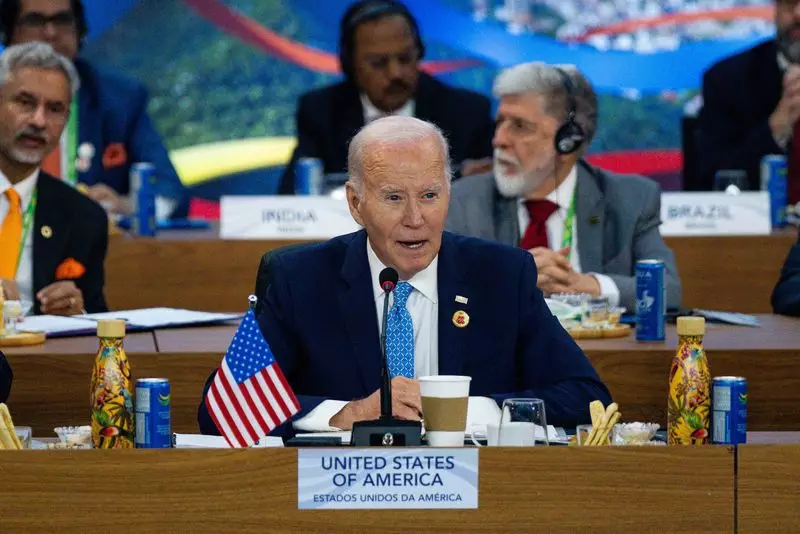In a significant development announced during the G20 summit in Rio de Janeiro, President Joe Biden has pledged an unprecedented $4 billion to the World Bank’s International Development Association (IDA) fund. This fund primarily targets the world’s poorest nations, offering them essential financial support through grants and low-interest loans. The announcement underscores a growing awareness of global inequality and the need for immediate action to address deep-rooted financial challenges exacerbated by the COVID-19 pandemic and ongoing geopolitical conflicts.
Biden’s commitment sets a new benchmark, surpassing the previous U.S. contribution of $3.5 billion made in December 2021. This act not only reflects a change in U.S. foreign aid philosophy, but it also highlights the Biden administration’s intent to re-establish the U.S. as a leader in global economic support. The significance of this $4 billion pledge cannot be overstated; it represents a robust answer to the escalating needs of developing countries facing heightened vulnerabilities from climate change, economic strife, and conflict.
The announcement also raises questions about future U.S. foreign aid policies, especially in light of the incoming administration of President-elect Donald Trump. Trump’s previous indications of a desire to cut foreign aid complicate the likelihood that this pledge will be honored. The interplay between Biden’s ambitious promises and Trump’s fiscal restraint could jeopardize this funding if Congress does not appropriate the necessary resources following the transition of power.
This ambitious pledge is not the only initiative President Biden is pursuing on the global stage. Alongside this funding, he aims to foster a bilateral clean energy partnership during his meeting with Brazilian President Luiz Inacio Lula da Silva. Collaborations focused on renewable resources are vital in addressing environmental challenges and creating sustainable development pathways that can reduce dependence on fossil fuels. Such undertakings signify a shift towards a more comprehensive foreign policy that intertwines economic, environmental, and social equity.
World Bank President Ajay Banga has set a daunting target for the upcoming replenishment conference scheduled for December 6, aiming for a record of $120 billion. However, achieving this goal will require considerable increases in commitments from various nations, particularly as poorer countries grapple with rising debt levels and climate vulnerabilities. As demands on the IDA fund grow, the necessity for developed nations to increase their contributions becomes more critical.
President Biden’s historic pledge reflects not only a commitment to addressing global poverty but also positions the United States as a proactive player in the international community. This initiative, if backed by sufficient funding from Congress and sustained political will, could represent a paradigm shift in how wealthier nations engage with poorer counterparts. It is essential for the international community to rally behind such initiatives, as they play a fundamental role in fostering a more equitable world. The future of global aid rests on collaborative efforts, with the current political dynamics emphasizing the importance of strategic partnerships and commitments to development.

